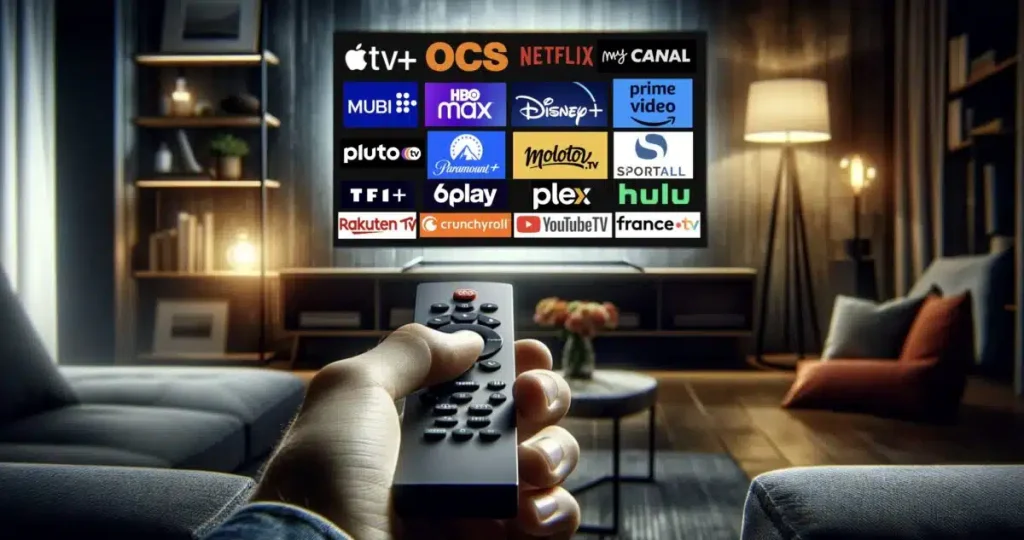
Outline
- Introduction
- Definition of IPTV
- Importance of IPTV in today’s digital landscape
- Historical Context of IPTV
- Early days of IPTV
- Evolution and milestones
- Current State of IPTV
- Market overview
- Key players in the industry
- Technological Advancements Driving IPTV
- High-speed internet and 5G
- Enhanced streaming technologies
- Increasing Popularity of Smart TVs and Devices
- Integration with smart home ecosystems
- Compatibility with various devices
- Personalized Viewing Experiences
- AI and machine learning in content recommendation
- User interface improvements
- Growth of On-Demand Content
- Rise of video-on-demand (VOD) services
- Impact on traditional broadcasting
- Live Streaming and Interactive Features
- Real-time streaming advancements
- Interactive features and audience engagement
- Security and Privacy Concerns
- Protecting user data
- Measures to combat piracy
- Global Market Expansion
- Emerging markets
- Localization of content
- Advertising and Monetization Strategies
- Ad-supported models
- Subscription-based services
- Challenges Facing IPTV Providers
- Bandwidth limitations
- Regulatory issues
- Future Predictions for IPTV
- Integration with augmented reality (AR) and virtual reality (VR)
- Potential for further AI integration
- Impact of IPTV on Traditional Media
- Shift in advertising dollars
- Changes in content production
- Conclusion
- Recap of key points
- Future outlook
- FAQs
- What is IPTV?
- How does IPTV differ from traditional TV?
- What are the benefits of using IPTV?
- Are there any risks associated with IPTV?
- How can I start using IPTV?
Article
Introduction
In today’s digital age, IPTV Trends have become a focal point for media consumption. IPTV, or Internet Protocol Television, represents a shift from traditional broadcast methods to online streaming services. Its significance in modern entertainment cannot be overstated, as it offers unparalleled convenience and flexibility to viewers.
Historical Context of IPTV
The roots of IPTV Trends can be traced back to the early 2000s when the concept of delivering television content over the internet began to gain traction. Initially, IPTV services were limited in scope and functionality. However, over the years, significant advancements in technology have propelled IPTV into the mainstream, with millions of users worldwide embracing this innovative form of media delivery.
Current State of IPTV
As we delve into the IPTV Trends of 2024 and beyond, it’s crucial to understand the current landscape of the industry. Today, IPTV is a thriving market, with numerous providers vying for dominance. From industry giants like Netflix and Hulu to smaller, niche platforms, there is no shortage of options for consumers seeking the best IPTV experience.
Technological Advancements Driving IPTV
The rapid proliferation of high-speed internet and the rollout of 5G networks have been instrumental in driving the growth of IPTV Trends. These technological advancements have enabled seamless streaming of high-definition content, even on mobile devices. Additionally, innovations in streaming technologies such as adaptive bitrate streaming have further enhanced the viewing experience for users.
Increasing Popularity of Smart TVs and Devices
The integration of IPTV with smart TVs and other connected devices has been a game-changer for the industry. Platforms like IPTV Smarters Pro have made it easier than ever for users to access their favorite content on a wide range of devices, from smart TVs to smartphones and tablets. This increased accessibility has contributed to the widespread adoption of IPTV services worldwide.
Personalized Viewing Experiences
One of the most significant IPTV Trends in recent years has been the focus on personalized viewing experiences. Platforms like IPTV Smarters Expert leverage AI and machine learning algorithms to analyze user preferences and behavior, providing tailored recommendations for content. This level of customization enhances the overall viewing experience and keeps users engaged for longer periods.
Growth of On-Demand Content
The rise of video-on-demand (VOD) services has been another driving force behind IPTV Trends. With platforms like IPTV Trends Login offering extensive libraries of on-demand content, users have the freedom to watch what they want, when they want. This shift away from traditional broadcasting schedules has revolutionized the way we consume media, giving viewers unprecedented control over their viewing habits.
Live Streaming and Interactive Features
Real-time streaming and interactive features are shaping the future of IPTV Trends. Platforms like IPTV Trends Login are investing heavily in live streaming capabilities, allowing users to watch events as they happen, from anywhere in the world. Additionally, interactive features such as live chat and audience polls enhance the sense of community and engagement among viewers.
Security and Privacy Concerns
With the rise of IPTV services, security and privacy have become growing concerns for consumers. Platforms like IPTV Smarters Pro are taking proactive measures to safeguard user data and prevent unauthorized access. From robust encryption protocols to regular security updates, providers are working tirelessly to ensure that users can enjoy IPTV content with peace of mind.
Global Market Expansion
The appeal of IPTV Trends extends far beyond developed markets. Emerging economies are witnessing a surge in IPTV adoption, driven by factors such as increasing internet penetration and the availability of affordable smart devices. Providers are also focusing on localization efforts, tailoring content to suit the cultural preferences and languages of diverse audiences worldwide.
Advertising and Monetization Strategies
As IPTV continues to gain traction, providers are exploring innovative advertising and monetization strategies. Ad-supported models, like those offered by IPTV Trends Login, allow users to access content for free while generating revenue through targeted advertisements. Subscription-based services remain popular as well, offering ad-free viewing experiences for a premium fee.
Challenges Facing IPTV Providers
Despite its rapid growth, the IPTV industry faces several challenges. Bandwidth limitations can impact streaming quality, particularly in regions with underdeveloped infrastructure. Additionally, regulatory issues surrounding content licensing and copyright laws pose legal hurdles for providers to navigate.
Future Predictions for IPTV
Looking ahead, the future of IPTV looks promising. The integration of augmented reality (AR) and virtual reality (VR) technologies promises to revolutionize the viewing experience, blurring the lines between the digital and physical worlds. Furthermore, advancements in AI and machine learning will continue to drive innovation, making IPTV smarter and more intuitive than ever before.
Impact of IPTV on Traditional Media
The rise of IPTV has had a profound impact on traditional media outlets. As advertising dollars shift from traditional TV to digital platforms, broadcasters are forced to adapt to changing consumer preferences. Additionally, the democratization of content production has empowered creators to produce high-quality, niche content tailored to specific audiences.
Conclusion
In conclusion, IPTV Trends are poised to reshape the media landscape in 2024 and beyond. With advancements in technology, personalized viewing experiences, and a global market expansion, IPTV has become a force to be reckoned with in the entertainment industry. While challenges remain, the future looks bright for IPTV providers and consumers alike.
FAQs
What is IPTV?
IPTV stands for Internet Protocol Television, a service that delivers television content over the internet instead of traditional satellite or cable formats.
How does IPTV differ from traditional TV?
Unlike traditional TV, which relies on scheduled programming, IPTV allows users to stream content on-demand and access live broadcasts over the internet.
What are the benefits of using IPTV?
IPTV offers greater flexibility, a wide range of content, personalized viewing experiences, and the ability to watch on multiple devices.
Are there any risks associated with IPTV?
Risks include potential security vulnerabilities and privacy concerns. Using reputable IPTV providers and ensuring proper security measures can mitigate these risks.
How can I start using IPTV?
To start using IPTV, you’ll need a high-speed internet connection and a compatible device such as a smart TV, smartphone, or streaming device. Subscribe to an IPTV service provider, and you’ll be ready to enjoy a wide array of content.


One Comment
[…] for more about this topic, feel free to check out our other article: https://iptvtrends.store/iptv-trends-what-to-expect-in-2024-and-beyond/ […]